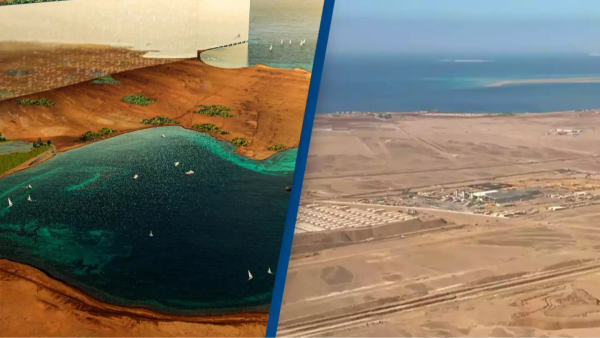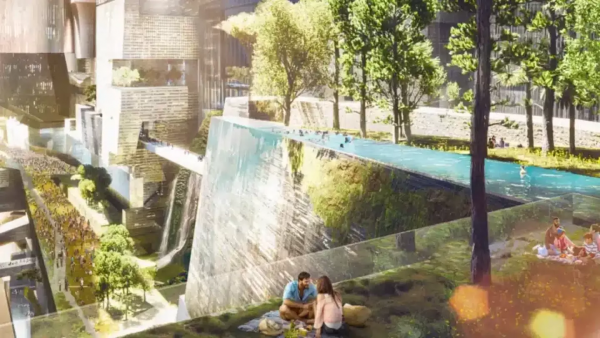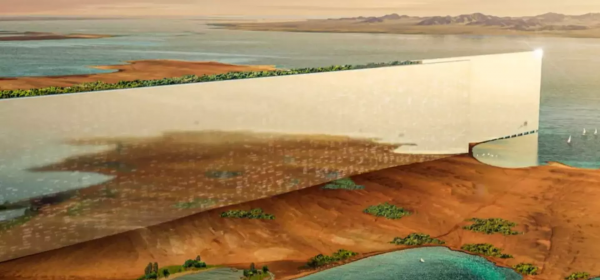
Saudi Arabia’s ambitious giga project known as ‘The Line’ is scaling back dramatically from its initial plan to span 105 miles.
Developed as part of the new $1.5 trillion urban area Neom in Tabuk, The Line was initially touted as a cognitive city made up of a ‘mirrored architectural masterpiece’, which would stretch across 170 kilometers, or 105 miles.
The Neom website still claims the city would stretch ‘from the epic mountains of Neom across inspirational desert valleys to the beautiful Red Sea’, but a new report claims developers are now pulling back on their plans.
According to Bloomberg, which spoke with people familiar with the project, the Saudi Arabia government hoped to have 1.5 million residents living in The Line by 2030.
“THE LINE will eventually accommodate 9 million people and will be built on a footprint of just 34 square kilometers,” the Neom website claims, adding that the city would offer ‘never-before-seen efficiencies’ with the ‘ideal climate all-year-round’, and access to all daily essentials within a five-minute walk.
However, officials now reportedly believe the development will be home to less than 300,000 residents by 2030, when just 2.4 kilometers (1.4 miles) will have been completed.

As a result of officials reigning in on the project, at least one contractor is said to have started dismissing a portion of its employees working on the site.
However, while The Line may not spring up as quickly as anticipated, work is continuing on other parts of the Neom project and people familiar with the matter claimed officials have maintained their overall objectives for The Line.
News of the pullback comes as officials await this year’s budget approval for Neom, indicating concern among the government as Neom attempts to fulfil its Vision 2030 program.
Officials have previously admitted that there will be some delays past the 2030 goal, with Finance Minister Mohammed Al Jadaan saying in December that a longer period would be needed to ‘build even sufficient human resources’.

“The delay or rather the extension of some projects will serve the economy,” he said.
Nadhmi Al-Nasr, the CEO of Neom, has previously made clear that the developers are up for the challenge of completing the project.
“If we are to solve the challenges of tomorrow, we must face up to them today, no matter how difficult they may seem,” he said.
“At Neom, we are addressing some of the most pressing challenges facing humanity by bringing together a community of the brightest minds committed to reimagining what a sustainable future will look like in 20 to 30 years, and building it today.












